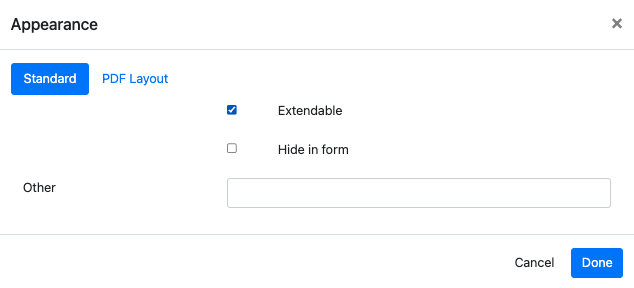New Features
Filtering of case management alerts
Previously case management alerts were generated if a case was not closed and it was older than the specified interval. You can now also add a filter so that the alert can conditionally be created depending on it’s data. For example you could create an alert. “Serious issue is Late”, with a filter ${criticality} = ‘serious’.

Note: you can refer to any data in the case using the ${} syntax.
Extendable Initialised Repeats
Previously, when you added a repeat count to a sub form, the number of repeats was set by the value of that count and the person filling in the form would not be asked if they wanted to add another record. This is probably what you want if the repeat count is set inside the form or is fixed. However you may have the situation where you are filling out a sub form using initial data from another survey so the repeat count is set by the number of existing records but you still want to allow the user to add additional records.
FieldTask version 6.814 is required to use this feature in FieldTask.
The specific user scenario where this requirement arose was for a list of suspects in a police case. We created a form that allowed the existing suspect information to be updated but we also wanted to allow additional suspects to be added.
This can now be done in WebForms and FieldTask by setting the appearance “extendable” on the “begin repeat”.

Rate Limiting APIs
An improved rate limiter has been added. This now limits the number of requests per minute, per organisation. By default the rate per minute is set to 0 which means no limit. However you can change this in the settings for your server. You need to have server owner privileges to do this.

If the rate is exceeded then an error message is returned with the request. Currently if you set an API rate limit it will apply to the following services:
- api/v1/data
- api/v1/data.csv
- surveyKPI/items (Called when you view a table of data for a survey on the analysis page)
Automatic Sentiment Analysis of Text Responses
A sentiment can be automatically calculated for text responses entered in any of the following languages; English, German, Spanish, Italian, Portuguese, French, Japanese, Korean, Hindi, Arabic and Chinese. This is done using Amazon Web Services (AWS) Comprehend service. The sentiment can have one of the following values; Positive, Negative, Neutral or Mixed. A confidence value in the sentiment can also be generated.
To add the sentiment to a text question include the following parameters:
- auto_annotate=true
- sentiment=yes
- from_lang={the language you are getting the sentiment from}
- source={the question name that has the text – no curly brackets around the name}
Note the online editor assists you in setting most of the above. Although you will have to add sentiment=yes yourself as an “other” parameter. This is shown below.

Other Changes
- Improved the performance of the shared resources page for sites with a lot of resources
- Improved performance of submissions. Notifications and other events triggered by a submission are now processed in a separate queue so that the submission manager can get straight on to the next submission.
- Server side validation to detect invalid characters in names for projects, users, roles and so on
- Server side sanitation of html for labels to remove executable scripts now done when the text is entered as well as when it is used
- Fixed issues with the script that does a fresh install of the server
- Reduced the volume of log entries written by automatic scripts, now these will only write one entry per day, not every time they run
- Allowed a notification that sends a periodic report to be disabled
- Allowed dateTime type questions to be updated in an oversight form
- Allowed dashes “-” in user names
